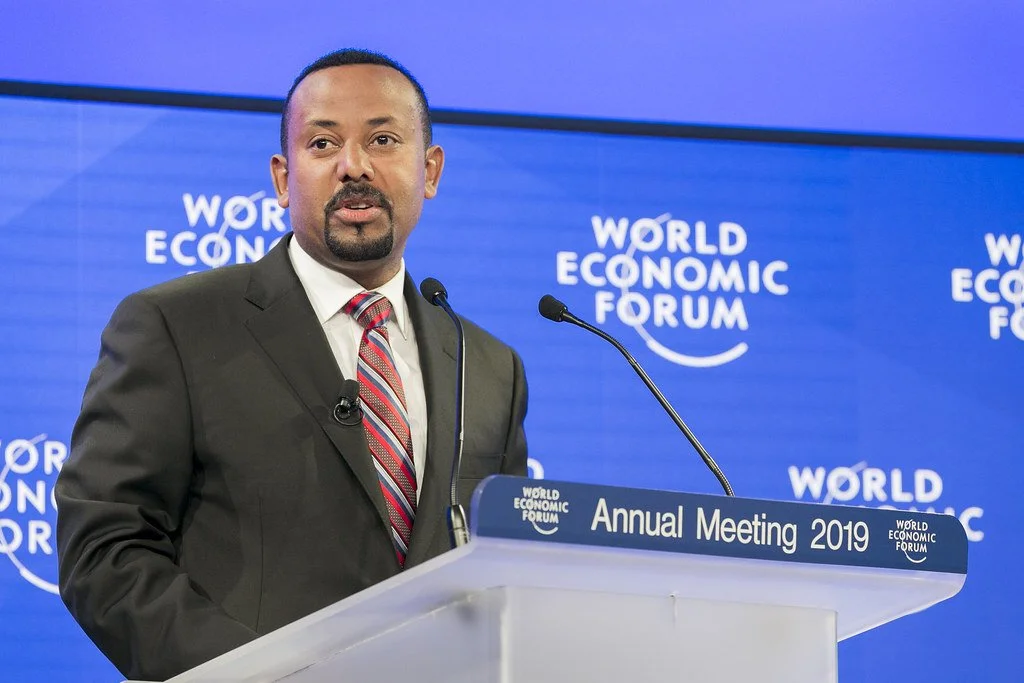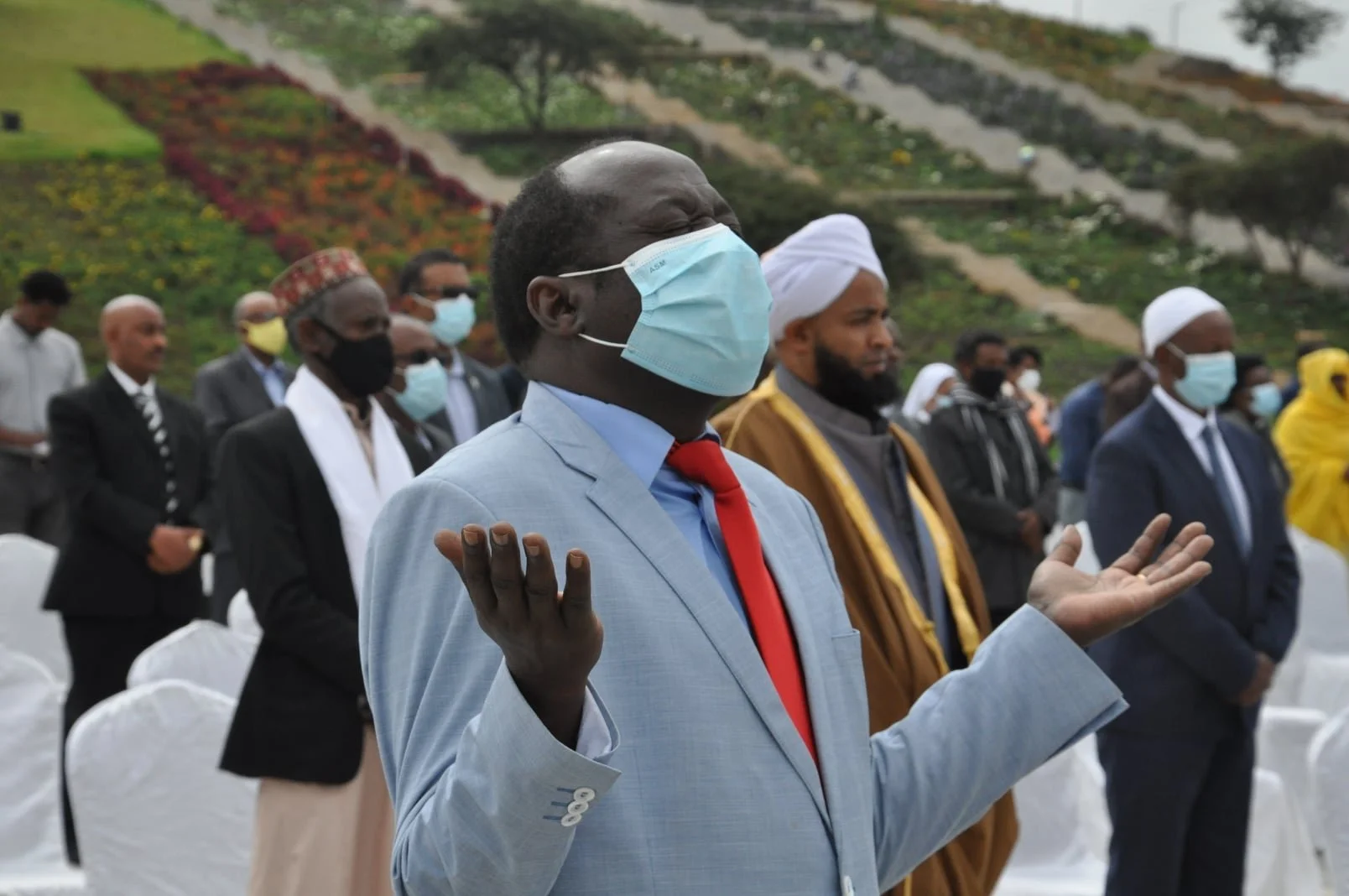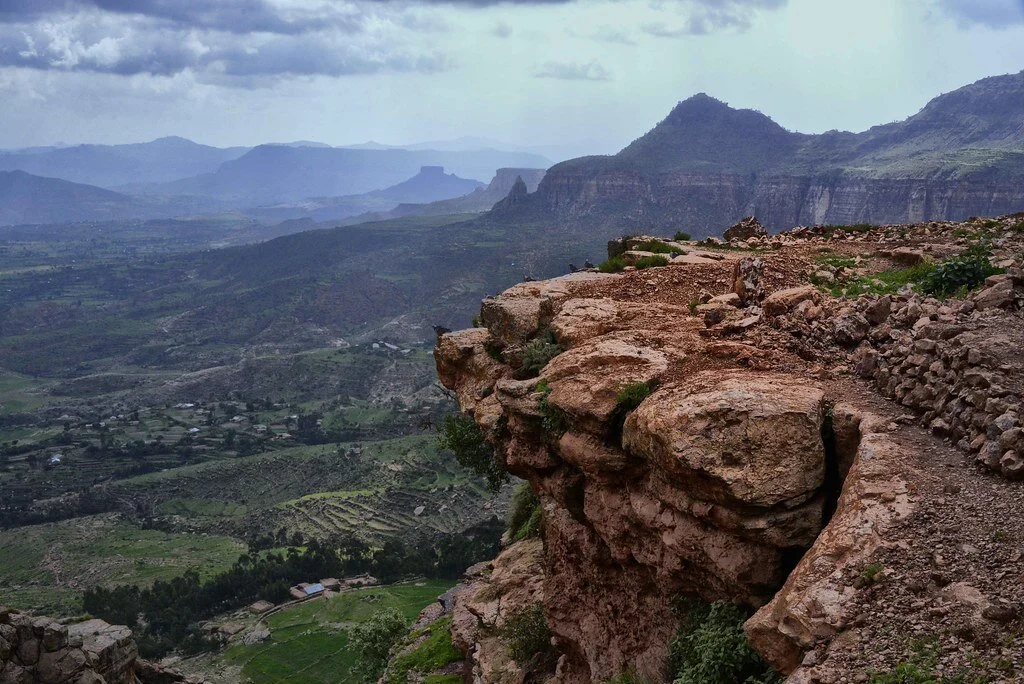(ANALYSIS) In March 2025, eight survivors of the Tigray War filed a groundbreaking criminal complaint with the German Federal Public Prosecutor alleging that twelve senior Ethiopian and Eritrean government officials and military officers committed war crimes and crimes against humanity during the conflict.
Read MoreEthiopia’s Amhara region, located in the north near Sudan, has benefited from measures that included pairing community medical workers with religious leaders on community health drives. Ethiopian Orthodox priests are respected for their collaboration with health organizations to spread awareness and immunization campaigns.
Read More(REVIEW) In 2018, Ethiopia’s new Prime Minister Abiy Ahmed appeared on the East African nation’s political scene almost from nowhere. Claiming to be responding to an assignment by God, the young Pentecostal Christian promised democratic salvation and national unity to a hopelessly divided nation.
Read More(OPINION) Ethiopia — with its rich historical heritage and 84 ethnolinguistic groups — faces ongoing challenges despite its democratic aspirations. The nation has struggled with cycles of political violence and persistent poverty, shaped by the 1974 Marxist military revolution and the 1991 rise of the Ethiopian People’s Revolutionary Democratic Front. Peace remains elusive amid continuing conflicts and economic difficulties.
Read MoreAs another year of drought looms in Somalia and famine stalks many rural communities, the prayers for rain have already begun. Horn of Africa faith-based organizations are increasingly playing a prominent role in responding to potentially massive famine that has received little attention.
Read MoreForeign aid is not a cure-all for Africa according to experts and leaders from Africa who spoke at a recent conference in New York City. Rather, they suggest foreign aid is only part of the panacea alongside a more holistic dose of self-reliance, good governance, entrepreneurship and transcendent spiritual values.
Read More(OPINION) The goal of aid is to end situations that lead to aid. It is estimated that the West has given $1.2 trillion in aid and development assistance to Africa since 1990 according to Greg Mills in the book “Expensive Poverty.” Much of that aid came from the U.S. But sadly the foreign aid has had little or no impact on bettering the lives of poor Africans.
Read More(ANALYSIS) The schism in the Ethiopian Orthodox Tewahedo Church, one of the most ancient and largest churches in the world, is another symptomatic evidence of the twin threats that Ethiopia is currently facing, namely ethnocentrism that results from fusing ethnicity with politics and religious extremism that results from fusing ethnicity with religion.
Read MoreBorn in a refugee camp in eastern Sudan to a Muslim father and a Christian mother, Mariam Ibraheem says “danger lurked in every dark corner.” Disease, abuse and poverty plagued her life. In 2013, a Sharia court sentenced Ibraheem to death for marrying a Christian man. She was pregnant with her second child at the time and gave birth to Maya while shackled in prison. Her story since then has sparked international outcry and admiration.
Read More(OPINION) Religious and political ethics lecturer Andrew DeCort writes extensively on the issues Ethiopia is facing with the expressed interest to be a bridge-builder. While I applaud his passion for being a bridge-builder and advocating for peace, I disagree, particularly, with his bold claim that “Christian nationalism is tearing Ethiopia apart.”
Read MoreOf the 7.6 billion people on Earth, 2.4 billion identify as Christian, 1.9 billion as Muslim, 1.2 billion as Hindu and more than 500 million as Buddhist. Those are just the four largest religions. In other words, 310 million in the U.S. do not necessarily constitute the epicenter for all religion in the world. If anything, religion in America is a unique outlier.
Read More(OPINION) On Dec. 17, the U.N. Human Rights Council, during its 33rd special session on Ethiopia, adopted a resolution establishing an international commission of experts on Ethiopia to conduct an investigation into allegations of human rights violations and abuses by all parties to the conflict.
Read More(ANALYSIS) It’s now clear that the Biden administration wants to oust Ethiopia’s Prime Minister Abiy Ahmed. This is extraordinary and would exacerbate many of the region’s challenges, including religious extremism. While Ahmed has made mistakes, they are incomparable to the persecution, repression and suffering caused by past regimes.
Read More(ANALYSIS) The current crisis in Ethiopia — displacing 2.1 million people with another 7 million in need of humanitarian aid — is an ethnic-political conflict, not a religious one. However, strengthening Ethiopia’s interfaith collaboration among religious groups can bring about much-needed national reconciliation and healing.
Read More(OPINION) Ethiopia’s image has been unfairly disfigured in media coverage of the Tigray conflict. Here’s how the Western media misunderstands and how Ethiopia and its allies can move forward amid a ceasefire to long-lasting peace and reconciliation.
Read More(OPINION) A viral video of His Holiness Abuna Mathias, a Patriarch of the Ethiopian Orthodox Tewahedo Church (EOTC), describing barbaric killings of civilians in Tigray has prompted heightened concern in the international community about human rights abuses, while many Ethiopians remain cautious and skeptical about whether disinformation campaigns driven by anti-government activists, geopolitical forces, “Ethiopia analysts” and media outlets are influencing Western communities and governments.
Read More(ANALYSIS) In the current crisis in northern Ethiopia, religion is used as a tool to misinform the international community, Ethiopian scholar Desta Heliso writes. The resulting diplomatic tensions are endangering not just the future of Ethiopia’s 110 million people, but peace in the whole Horn of Africa.
Read More(ANALYSIS) Recent global headlines sparked by a former BBC reporter claimed that 750 Orthodox Christians were killed in northern Ethiopia, but there is not evidence of these deaths. Moreover, international media has mischaracterized the recent crisis in Ethiopia and ignored decades of history that’s pitted federal armed forces against the powerful, well-funded Tigrean People’s Liberation Front (TPLF).
Read More(ANALYSIS) External forces from the Middle East are exploiting ethnic tensions and threatening peace between Muslims and Christians in Ethiopia.
Read More(OPINION) Forces in Ethiopia and abroad are currently capitalizing on the appalling murder of the musician and political activist Hachalu Hundessa, which led to violent ethnic-based clashes that killed nearly 200 people this month. Political groups in Africa’s second-most-populous country have consistently paraded distorted and, at times, wholly inaccurate narratives about the democratic values Hundessa stood for.
Read More


















